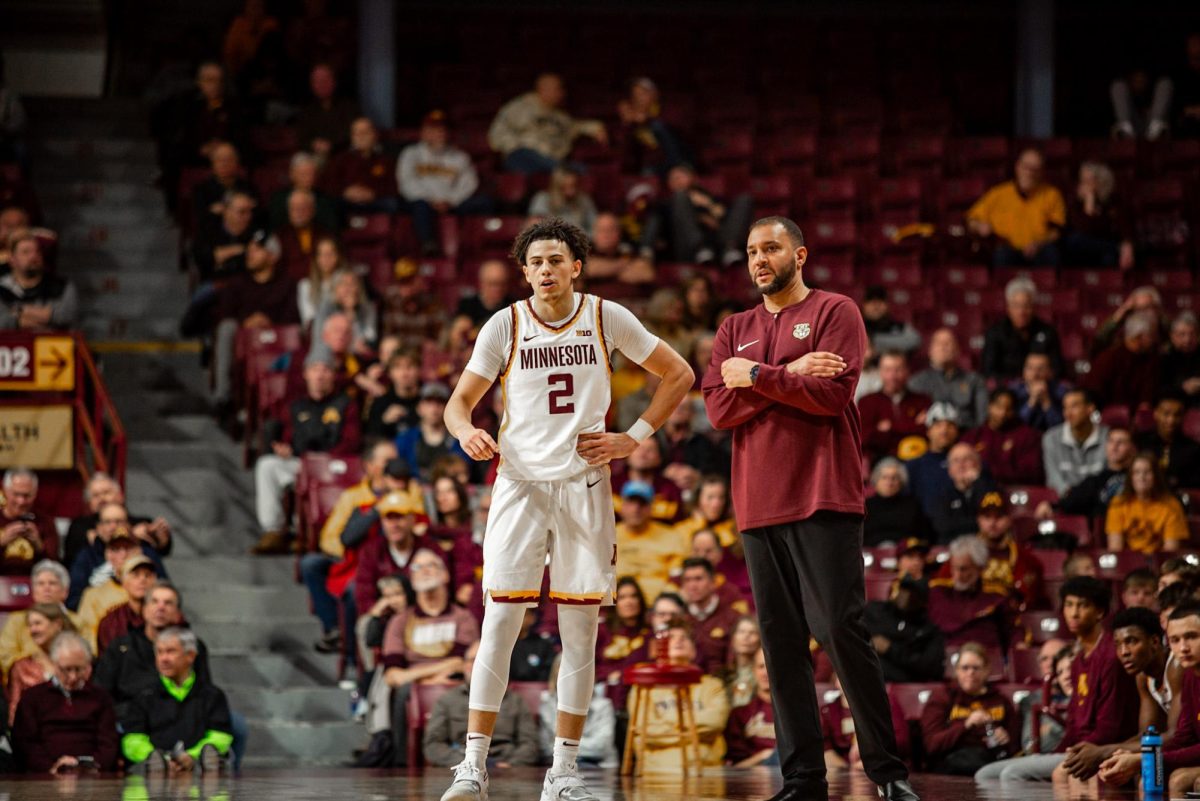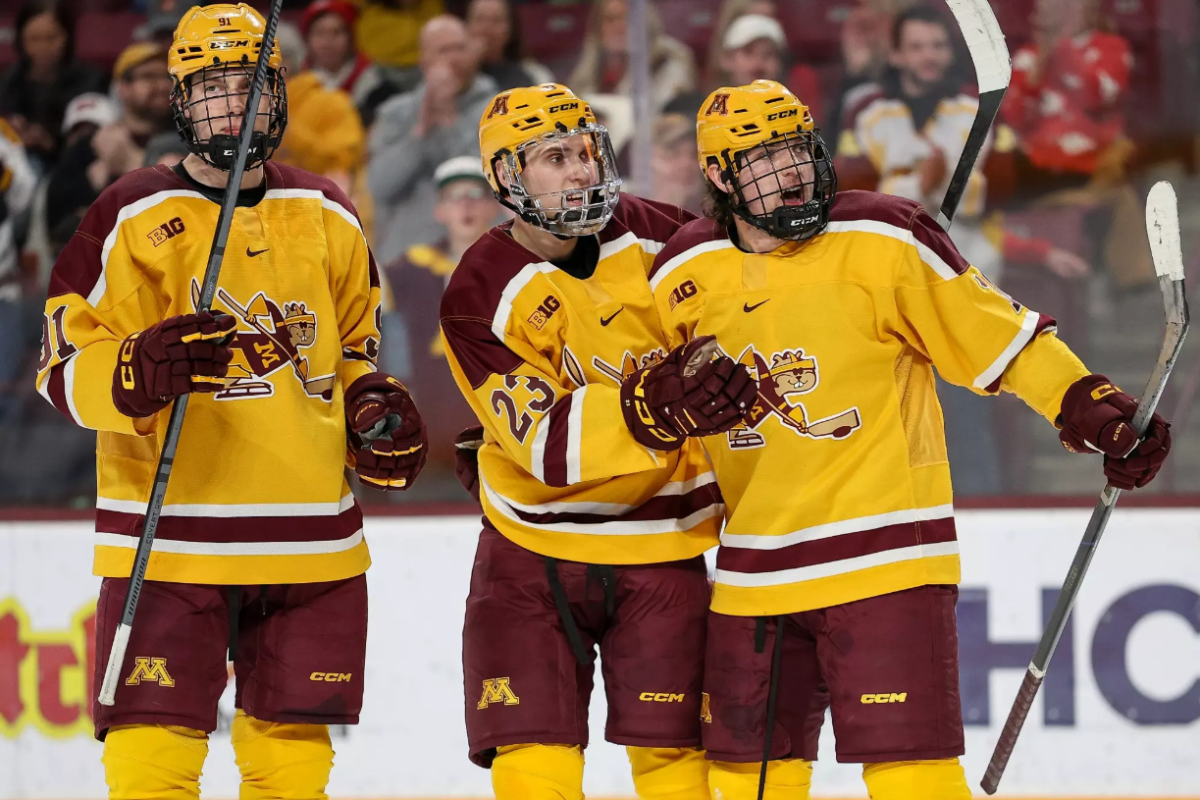The 2005 Minnesota football regular season ended like so many others have under coach Glen Mason’s watch: with embarrassing disappointment.
The Gophers have lost their last regular season game every year since 2001. Saturday’s 52-28 loss was the fourth time in five seasons Minnesota has given up 40 points or more in the year’s final scheduled contest.
With one season left on his contract, games like Saturday’s are exactly why Mason doesn’t deserve a lucrative contract extension.
Since coming to the Twin Cities, Mason’s seasons have ended with a reality-inducing thud.
The numbers look like this:
1997 saw the Gophers finish the season 1-8. They were 2-6 in 1998. 1999 was an aberration with Minnesota going 3-0 to finish the regular season, but things got back to normal at 1-3 in 2000, 1-3 in 2001 and 0-4 in 2002.
2003’s regular season finish of 3-1 was tempered by a 40-22 season-closing bashing at the hands of Iowa to dash any hopes Minnesota had of playing in a New Year’s Day bowl game. Last season, the Gophers went 1-5 down the stretch, and this year it was 2-3 with Saturday’s game as the exclamation point.
Sure, Minnesota has won three bowl games in a row. But when you’re playing Big Ten football, a pair of Music City Bowls and a Sun Bowl just doesn’t cut it. Especially when Mason’s asking for a contract extension like the one he wants.
Mason did an admirable job pulling the Gophers program out of the disastrous mess he inherited when he came on board in 1997. But he did that in 1999. It’s six years later, and the program hasn’t made any further progress.
Minnesota went 8-4 in 1999, and finished tied for fourth in the Big Ten with a 5-3 record. In the six seasons since, the Gophers have finished the Big Ten schedule tied for fourth, tied for last, seventh, tied for fourth, eighth and seventh, respectively.
In just one of those seasons has Minnesota finished above .500 in the Big Ten. High win totals and bowl games are nice, but they’re easy to obtain when you play the kind of nonconference schedule Minnesota does.
The Gophers have played 29 nonconference opponents in Mason’s tenure. Two of them have come from Bowl Championship Series conferences (1-10 Iowa State in 1997 and 2-9 Baylor in 2000). None of them have been ranked.
Those games have acted as a huge booster seat toward reaching the six wins required for bowl eligibility.
There are those who will use the argument that “Minnesota’s administration doesn’t commit to fielding a winning program.” And sure, Mason doesn’t have a fertile recruiting base, an on-campus stadium, or a football Saturday atmosphere on campus.
But this is Big Ten football. You don’t play in the Big Ten to finish with no better than five conference wins and fourth place at the end of the season. It doesn’t matter if the budget is “Titanic” or if it’s “Clerks,” Mason’s numbers are unacceptable.
In the past three years, the wheels have come off for the Gophers at the most inopportune times. Poor administration support doesn’t blow a 28-7 fourth quarter lead against Michigan in 2003; it doesn’t mean a team should be bad at tackling; and it doesn’t force a punter to become completely unglued in a tense spot this year against Wisconsin.
Those things all come down to one factor: subpar coaching.
Since he inherited the Minnesota program, Northwestern, Purdue, Ohio State, Michigan, Iowa, Wisconsin, Penn State and Illinois have all won at least a share of the Big Ten title. Michigan State finished with six Big Ten wins in 1999. That means only Indiana has had a worse banner year than the Gophers in the Glen Mason era.
In most places, that would get you fired. At Minnesota, it has people asking, “Who are we going to get who’s better?”
And maybe there isn’t anyone who is going to do better at Minnesota. But it’s worth a shot trying to find someone who might.
The Gophers know what they can expect with Glen Mason: a below average Big Ten football season.
That isn’t deserving of a big contract extension. It warrants a firing.
” Matt Anderson welcomes comments at [email protected].







